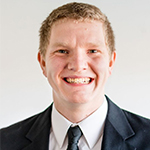Visualizing the Future: How Emerging Technologies are Changing the way we Teach and Learn
With Craig Kapp
It’s virtually impossible to check the news without seeing some mention of a new piece of technology that is poised to be the “next big thing.” During this session we will explore a wide range of emerging technologies, including virtual reality, augmented reality, artificial intelligence and more to see how they are beginning to be used in classrooms around the world. We will also discuss ways in which these technologies are being used to support interdisciplinary collaboration efforts at NYU through our Digital Humanities initiative, and how students in Computer Science are using these tools to help develop museum exhibit prototypes for public spaces around NYC.
Craig Kapp is a Clinical Associate Professor of Computer Science at New York University. His research interests include mixed reality simulations, data visualization, graphics and gaming, interactive media and responsive software design, digital storytelling, educational technology platforms and developing assistive technologies for people with disabilities. He has won numerous awards for his work with technology in the classroom, including NYU’s Teaching with Technology award (2016 & 2019) and the Marateck Prize for Outstanding Teaching in Computer Science (2016).
Before working at NYU, Craig served as the Assistant Director of Instructional Technology at TCNJ where he designed and developed TCNJ’s first course management system, SOCS. He continues to work for TCNJ’s Global Graduate program in Mallorca, Spain where he teaches a variety of courses on educational technology integration.
Google Apps – 4 Tools That Make Collaboration Easier
With Colleen Schmidt
Cloud computing has changed the way we interact with information. Instead of files and data being stored on local hard drives or network shares, it can now be stored and accessed remotely at any time from any location using the Internet. This presentation will be covering 4 of Google’s applications that can help ease the sharing of information and data via the Cloud – Groups, Drive, Chat and Meet.
Colleen Schmidt Colleen Schmidt is a Systems Administrator at the College. She has been with the Information Technology department at the College since 2013. She has over 25 year of experience in IT, mainly in the education and pharmaceutical industries.
Directed Technology to Enhance Active Learning and the Integration of Computational Methods in the Organic Chemistry Curriculum
With Dr. Stephanie Sen and Dr. Joe Baker
The TCNJ Organic Chemistry curriculum is a 2 semester sequence that includes lecture and laboratory components. While traditional lecture methods have been used for many years, a change in pedagogical methods has been initiated to increase problem solving skills and to integrate content learned in the genera chemistry curriculum. The use of active learning methods in organic chemistry has been well documented in the literature and is used at other institutions, although these methods are often an “add on” to traditional lecture format.
We have chosen a slightly different approach to active learning– taking a more holistic approach– by intentionally addressing the difficulties students have in pattern recognition, 3D modeling, and the integration of physical and organic chemistry concepts. We are also focused on enhancing learning outside of the classroom through more guided methods.
The methods used include: 1) the use of an online textbook platform that allows for just-in-time adjustments to content, 2) the addition of workshops that focus on pattern recognition and spacial manipulation of both chemical and non- chemical subjects, 3) the use of in-class assessments that allow for immediate feedback and learning, 4) the development of in-class problem solving using computer aided technology, 5) the used of electronic laboratory notebooks, and 6) the incorporation of computational problems that are directly related to lecture and laboratory.
The intended effects are to 1) enhance student engagement and communication, 2) provide faster and more individualized feedback 3) develop transferrable problem solving skills, and 3) enhance in-depth understanding of chemical processes.
Flipping the Classroom: Leveraging Technology to Engage Students and Make Better Use of Limited Classroom Time
With Craig Kapp
During this session we will explore how NYU’s Computer Science department has “flipped” its largest undergraduate course, “Introduction to Computer Programming,” which serves over 500 students each semester. Topics will include how our curriculum was redesigned, the role of peer tutoring, student feedback, faculty & adjunct support as well as technology tools that can be used to support students outside of the classroom.
 Craig Kapp is a Clinical Associate Professor of Computer Science at New York University. His research interests include mixed reality simulations, data visualization, graphics and gaming, interactive media and responsive software design, digital storytelling, educational technology platforms and developing assistive technologies for people with disabilities. He has won numerous awards for his work with technology in the classroom, including NYU’s Teaching with Technology award (2016 & 2019) and the Marateck Prize for Outstanding Teaching in Computer Science (2016).
Craig Kapp is a Clinical Associate Professor of Computer Science at New York University. His research interests include mixed reality simulations, data visualization, graphics and gaming, interactive media and responsive software design, digital storytelling, educational technology platforms and developing assistive technologies for people with disabilities. He has won numerous awards for his work with technology in the classroom, including NYU’s Teaching with Technology award (2016 & 2019) and the Marateck Prize for Outstanding Teaching in Computer Science (2016).
Before working at NYU, Craig served as the Assistant Director of Instructional Technology at TCNJ where he designed and developed TCNJ’s first course management system, SOCS. He continues to work for TCNJ’s Global Graduate program in Mallorca, Spain where he teaches a variety of courses on educational technology integration.
Designing for Active Learning
With Swati Ramani
Overheard: “I’m an expert at using active learning. My students tell me so in my course evaluations.” We’ll straighten this out with an active learning building block approach. Come ready to participate and leave with strategies and resources.
 Swati Ramani is the Instructional Designer for The College of New Jersey. Her background includes over 4 years of experience in this field. She enjoys helping faculty make effective use of technology and integrate it with their pedagogy. Her expertise lies in course design & development, constructive alignment and designing for active learning. She has recently achieved a Certificate in College Teaching from Claremont Graduate University. She is also a doctoral candidate in Information Systems & Technology with a concentration in Instructional Media Design and Education Technologies at Claremont Graduate University.
Swati Ramani is the Instructional Designer for The College of New Jersey. Her background includes over 4 years of experience in this field. She enjoys helping faculty make effective use of technology and integrate it with their pedagogy. Her expertise lies in course design & development, constructive alignment and designing for active learning. She has recently achieved a Certificate in College Teaching from Claremont Graduate University. She is also a doctoral candidate in Information Systems & Technology with a concentration in Instructional Media Design and Education Technologies at Claremont Graduate University.
Virtual Reality Playground
With Drew Hopkins
In recent years virtual reality has transformed from being a novel idea to powerful tool granting users access to experiences otherwise unimaginable. What does this innovative technology have to do with education? Will this technology have any fit for your current curriculum? In this breakout we will be discussing how virtual reality is changing, what kind available content is out there, and our offices plans going forward. We will have a brief presentation followed by opportunities to experience the devices we have to offer.
 Drew Hopkins is a Business Administration major at The College of New Jersey focusing on Information Technology and receiving his minor in Computer Science. His current work with the office of instructional technology is virtual reality research exploring the intersection of virtual interaction and education. He is passionate about his work and hopes to find himself in a career in instructional technology.
Drew Hopkins is a Business Administration major at The College of New Jersey focusing on Information Technology and receiving his minor in Computer Science. His current work with the office of instructional technology is virtual reality research exploring the intersection of virtual interaction and education. He is passionate about his work and hopes to find himself in a career in instructional technology.
